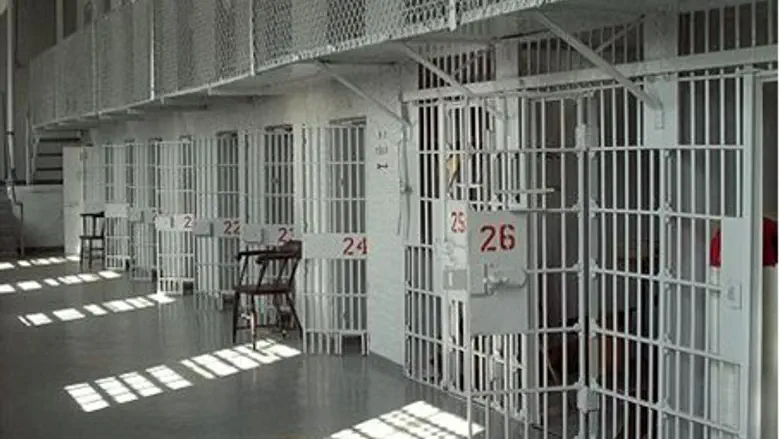
The Knesset’s Internal Affairs and Environment Committee held a meeting Monday regarding arrests and the phenomenon of police holding detainees in jail for a single night.
Police representatives revealed that 109,000 people were either arrested or detained for questioning in 2010, and again in 2011. In 2012 the number was 108,000.
Of those, in 2011, 20,642 were arrested and held in custody for up to 24 hours. In 2012, 18,978 were held for up to 24 hours.
Overall, 60,869 people were arrested in 2010, 58,036 in 2011, and 62,337 in 2012. So far in 2013, 20,631 people have been arrested.
Police did not bring the data most relevant to the discussion – the number of people held overnight in prison for one night and released only in the morning. Committee head MK Miri Regev (Likud) took them to task for the lack of data.
MK Yisrael Hasson (Kadima) did a quick calculation and discovered that roughly three percent of Israeli citizens are arrested or detained for questioning every year. He expressed shock that the number was so high.
Attorney Raanan Giladi, a public defender, said he estimates that one-third of those arrested for 24 hours or fewer – 6,000 to 7,000 people each year – are held overnight. Some are minors who are traumatized by the overnight stay, he added.
Public attorneys are considering filing suit to the Supreme Court over the phenomenon of overnight arrests, he revealed. He accused police of holding people in holding cells for the night without need, saying that often a police commander who could release detainees at night does not do so.
The committee heard that there are judges in court 24 hours a day who have the power to release detainees from custody, but that they do not do so because police commanders have the power to release detainees without court intervention.
MK Moshe Feiglin (Likud) said he believes police officers hold detainees overnight as a form of unofficial punishment. In addition, he charged, police prefer to let judges release detainees in the morning rather than doing so themselves at night in order to avoid taking responsibility for the decision.
“We suffering from a culture that doesn’t understand the secret of freedom,” he warned. “Freedom must be treated as sacred.”